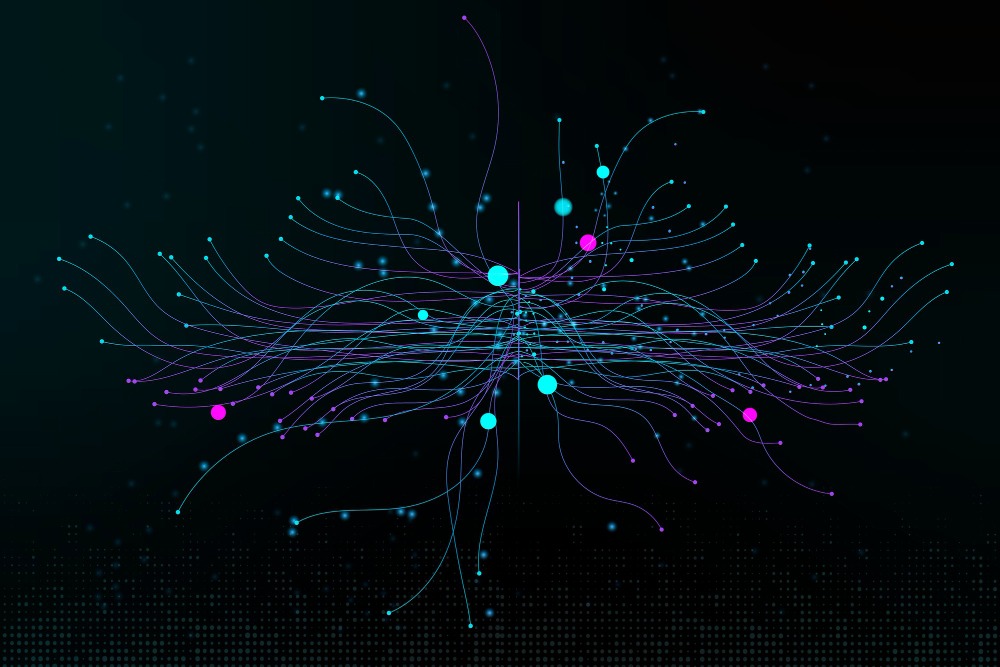
AI CERTS
2 days ago
AI Network Design Certification: Empowering Professionals in the Era of Smart Connectivity
As industries shift towards intelligent connectivity, AI network design has emerged as a cornerstone of modern infrastructure. Integrating artificial intelligence into network design ensures scalability, efficiency, and resilience. Whether it’s optimizing network traffic, enhancing cybersecurity, or enabling autonomous systems, AI is transforming how networks are conceptualized and managed. Pursuing an AI network design certification equips professionals with the technical and strategic skills to harness AI for building smarter, more adaptive networks.
This article explores the importance of AI in network design, the skills covered in certifications, real-world applications, and the benefits of mastering this dynamic field.

Why AI is Essential for Modern Network Design
Traditional network design approaches often struggle to keep pace with today’s demands for high-speed connectivity, low latency, and robust security. AI-driven network design addresses these challenges by automating processes, predicting performance bottlenecks, and optimizing resource allocation.
Key benefits of AI in network design include:
- Intelligent Traffic Management: AI analyzes data in real time to optimize network traffic, reducing congestion and improving performance.
- Predictive Maintenance: AI systems predict and resolve potential issues before they disrupt network operations.
- Enhanced Security: AI identifies anomalies and mitigates threats, fortifying network security.
- Scalability: AI-driven automation enables networks to scale dynamically based on user demand.
Core Skills Covered in an AI Network Design Certification
An AI network design certification provides professionals with the expertise to design, implement, and manage AI-driven networks. Here are some key skills covered:
1. Foundations of Network Architecture
Participants learn the fundamentals of network architecture, including routing, switching, and network protocols. These foundational skills are essential for integrating AI into network systems.
2. AI and Machine Learning for Networks
Certification programs teach how to apply AI and machine learning (ML) techniques to optimize network performance, enhance security, and predict traffic patterns.
3. Network Automation Tools
Professionals gain hands-on experience with tools like Ansible, Terraform, and Cisco DNA Center to automate network deployment, configuration, and management.
4. Predictive Analytics and Network Optimization
Participants learn to use predictive analytics to anticipate network issues, such as congestion or hardware failures, and implement proactive solutions.
5. Cybersecurity in AI Networks
AI network design certifications emphasize security, teaching professionals how to deploy AI systems that detect and mitigate cyber threats in real time.
External Resource: Discover automation tools for network design in Cisco’s guide to AI-powered networks.
Real-World Applications of AI in Network Design
AI-driven network design has practical applications across industries, revolutionizing connectivity and communication. Here are some examples:
1. Telecommunications
AI enhances network performance by managing bandwidth allocation, optimizing data flow, and predicting outages. Telecom giants like Verizon and AT&T leverage AI to ensure seamless service delivery.
2. Smart Cities
AI-driven networks power smart city infrastructure, from traffic management systems to IoT devices, ensuring efficient resource utilization and enhanced public safety.
3. Enterprise Networks
Businesses use AI to optimize their internal networks, improving collaboration, securing sensitive data, and enabling remote work with minimal downtime.
4. Autonomous Vehicles
AI network design ensures low-latency communication between autonomous vehicles and cloud systems, enabling real-time decision-making.
Benefits of AI Network Design Certification
Obtaining an AI network design certification provides significant advantages for professionals and organizations:
1. Improved Efficiency
AI automates routine tasks like network monitoring and troubleshooting, freeing up time for strategic planning and innovation.
2. Enhanced Security
With AI-driven anomaly detection, networks are better equipped to identify and respond to cyber threats, minimizing vulnerabilities.
3. Career Advancement
Certified professionals are in high demand, opening doors to roles such as network architect, systems engineer, and AI specialist in network management.
4. Future-Proofing
As AI continues to redefine connectivity, certification ensures professionals remain ahead of emerging trends, equipping them to design next-generation networks.
External Resource: Explore career opportunities in AI network design with Deloitte’s report on digital transformation.
Ethical and Practical Considerations in AI Network Design
While AI-driven networks offer significant advantages, they also raise challenges and ethical questions:
1. Data Privacy
AI networks rely on vast amounts of data, raising concerns about user privacy. Certification programs emphasize compliance with regulations like GDPR and CCPA.
2. Algorithm Bias
AI systems can exhibit bias, affecting network performance or security measures. Learning how to identify and mitigate biases is crucial for building equitable networks.
3. Scalability Challenges
Ensuring that AI systems can scale without compromising performance is a key focus of certification programs.
4. Environmental Impact
AI-powered networks require substantial energy. Adopting green AI practices can mitigate this impact.
The Future of AI in Network Design
As AI technology evolves, its role in network design is expected to expand. Here are some emerging trends:
- AI-Driven 5G Networks: AI will enhance 5G networks by optimizing bandwidth allocation, improving connectivity, and reducing latency.
- Edge AI for IoT: Edge computing will integrate AI to process data locally, improving response times for IoT devices.
- Self-Healing Networks: AI systems will enable networks to identify and resolve issues autonomously, ensuring uninterrupted service.
Professionals with an AI network design certification will play a pivotal role in shaping these advancements, ensuring seamless connectivity in an increasingly connected world